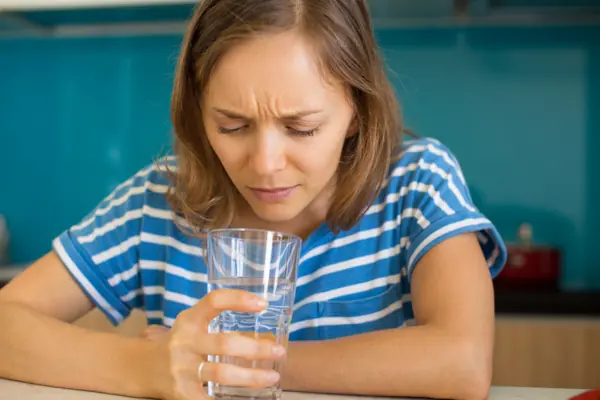Before proceeding to have your well chlorination in Gastonia, gaining at least the basics of well chlorination can help you a lot. Maintaining well chlorination procedures is a vital part of keeping your water safe. Well chlorination helps to control bacteria and other contaminants that may be present in your well water.
It’s important to use the right amount of chlorine and follow the correct procedure to achieve well chlorination. Let’s discuss well chlorination in detail and provide you with all the information you need to keep your water safe!
The use of chlorine in a well to kill potentially harmful microorganisms is known as well chlorination. Water from a new or repaired well and any well where the sanitary seal has been removed should be considered contaminated. Bacteria that contaminate water are common in soil and on most surfaces, and they can enter the well during construction or maintenance.
As a result, after the construction, repair, and maintenance of any well, complete and proper disinfection of the well and water system is an important step. When bacteriological water sample analysis reveals the presence of coliform bacteria, adequate disinfection is one step to eliminating contamination in a well. Proper chlorination is also used when an analysis reveals the presence of bothersome bacteria.
A thing to remember, though: When working with chlorine, always take the necessary precautions. Proper ventilation, eye protection, a respiratory mask, long sleeves, heavy work clothing, and gloves are common precautions. Other precautions may be necessary as well. One of those precautions that would be very valuable to you is hiring us here at Well Doctor LLC.
The following describes a typical chlorination procedure. If you have water treatment equipment in your well, you should contact the manufacturer or your well driller for information on the effects of chlorination on the system.
You could hire us to disinfect the well. We are a registered well driller, and we are professionals who are familiar with private well components, such as filtration equipment. Complete well information, such as depth, well diameter, and static water level, will also be required to determine exact chlorine requirements for proper chlorine concentrations.
- Remove the well seal’s vent cap and insert a clean funnel into the opening.
- Fill a clean bucket halfway with water and add the appropriate amount of chlorine. Add the chlorine to the water, not the chlorine to the water.
- Pour the chlorine solution into the well using the funnel and allow it to settle for three hours.
- Connect a hose to the well head’s faucet. Turn on the water and recirculate it through the hose and into the well for 30 minutes to ensure that the inside walls of the casing are thoroughly washed.
- Remove the hose from the vent and turn off the water. Replace the vent.
- Go to the farthest away outside faucet from the well. Open the faucet and run the water until you detect a chlorine odor. Turn off the water supply. Run the water from the other outside faucets until a chlorine odor is detected, then turn off the water.
- Continue to all of the inside plumbing fixtures. Run the water until you detect a chlorine odor, then turn off the faucet.
- Allow the chlorinated water to stand for at least 24 hours in the well and water system.
- After 24 hours, the treated water can be drained using an outside faucet until the chlorine odor is gone. Monitor the rate of runoff to avoid pump damage. The inside faucets can be turned off once the chlorine is no longer present outside. Heavily chlorinated water must not be discharged into the septic system or over the drain field area.
- A chlorine test kit should be used to ensure that all of the chlorine has been discharged from the well and plumbing fixtures.
Why Should You Not Try Diying Your Well Chlorination?
If you are not well-versed in well chlorination procedures, it is best to leave the task to a professional like us here at Well Doctor LLC. A poorly chlorinated well can lead to water contamination and health risks for your family. Improperly chlorinated water can also cause corrosion of metal pipes and fixtures in your home, resulting in costly damage.
To ensure the safety of your drinking water, trust the professionals at our Gastonia office to properly chlorinate your well. We have the expertise and equipment necessary to get the job done right – call us today!
Keep in mind that well chlorination is not always 100% effective in eliminating all contaminants from the water. However, it is one of the most common and effective ways to treat well water. In addition, chlorine kills bacteria and other pathogens that can cause illness, so it is an essential step in ensuring your family’s safety. If you are ever unsure whether your well has been properly chlorinated, contact a professional for assistance. They will be able to test your water and recommend the best course of action to take.
Is there any risk?
There can be some risks associated with chlorine exposure, but they are typically minimal if the proper precautions are taken. It is important to avoid drinking or to come into contact with chlorinated water for extended periods. If you are pregnant or have young children, it is especially important to take care when using chlorinated well water. Be sure to follow all safety instructions provided by your local water authority.
How Long Does Chlorination Last?
The length of time that chlorine remains effective in well water depends on several factors, including the concentration level of chlorine and the pH level of the water. Generally speaking, chlorination will last several hours to a few days. It is important to regularly monitor the chlorine levels in your well water and make any necessary adjustments accordingly.
Chlorination is an important step in water treatment. It helps to destroy harmful bacteria, making your water safe to drink. Here at Well Doctor LLC, we offer chlorination services that will help to make your water safe and healthy. If you’re interested in learning more about our services or want to schedule a consultation, please give us a call today. We would be happy to discuss our chlorination options with you and answer any questions you may have.

